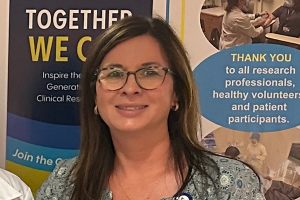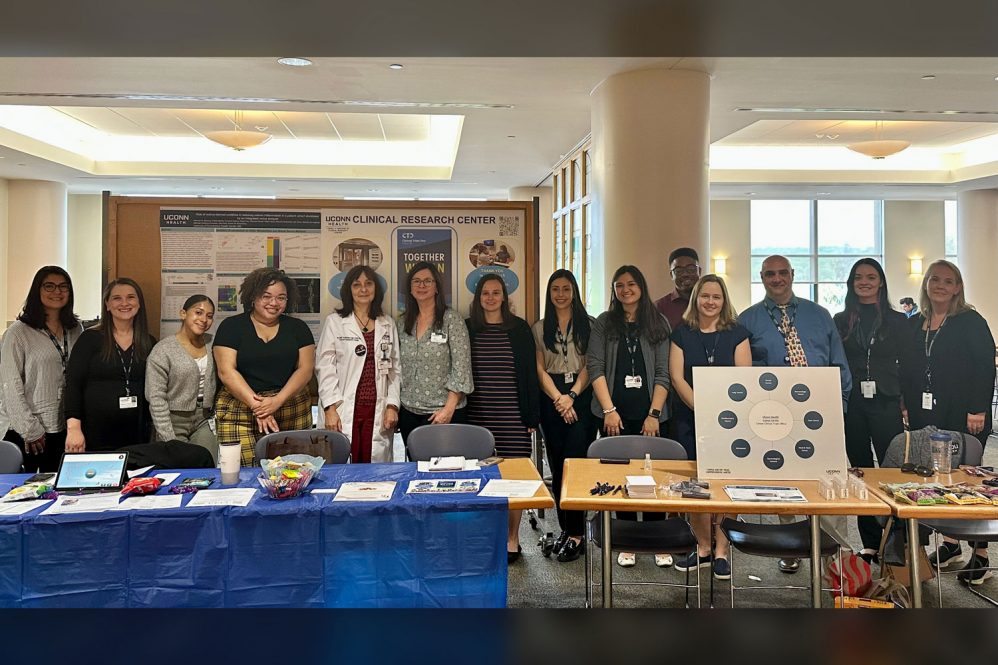More than 70 clinical trials are open and active in UConn Health’s Lowell P. Weicker, Jr. Clinical Research Center (CRC), which recently celebrated the origins of clinical trials.
May 20 is generally accepted within the scientific research community as Clinical Trials Day.
“The CRC provides support across the full spectrum of patient-oriented research and is the cornerstone of clinical research at UConn Health,” says research nurse Catherine Jahne, “Our staff can provide investigators with the resources they need and help make it easier to get and stay engaged in research. Our primary mission is to support UConn Health faculty conducting research that supports the National Institutes of Health.”

One of several departments conducting human-subject research at UConn Health, the CRC is a dedicated space for this purpose, in the main lobby of the Connecticut Tower. It has 19 employees.
“The CRC has been a valuable resource for School of Medicine and School of Dental Medicine faculty conducting clinical research since 1994,” says Dr. Victor Hesselbrock, the CRC’s interim director, who’s been involved from Day 1. “In addition to providing highly trained staff, exam rooms, clinical laboratory assays and administrative support for clinical research at UConn Health, it has also provided a variety of education and training programs (including the Masters Degree in Clinical and Translational Research) for students, staff and faculty over the years. More recently the CRC supported a number of industry and federally funded clinical trials related to mitigating the COVID-19 pandemic.”
Clinical Trials Day recognizes the start of what’s largely considered the first randomized clinical trial, dating back to before the American Revolution.
The CRC also has an academic component, offering monthly seminars for faculty, staff, residents, and students interested in clinical research.
“Many research topics have been presented in areas such as outcomes research, statistics, and training, as well as research techniques in molecular biology, exercise physiology, pediatric AIDS, cardiology, cancer, and dentistry,” says Elizabeth Laska, CRC nurse manager. “The CRC Seminar Series is an approved Continuing Medical Education (CME) activity.”
The number of active clinical trials changes monthly as studies close and new ones open. See CRC’s current research listing.
There’s also a searchable page to find information about other research studies at UConn Health.
As for that very first clinical trial, that’s credited to James Lind, a Scottish physician who, as a ship’s surgeon in the British Royal Navy, on May 20, 1747, randomized sailors into groups in an effort to compare the effects of different treatments of scurvy. Lind published his findings in 1753.



